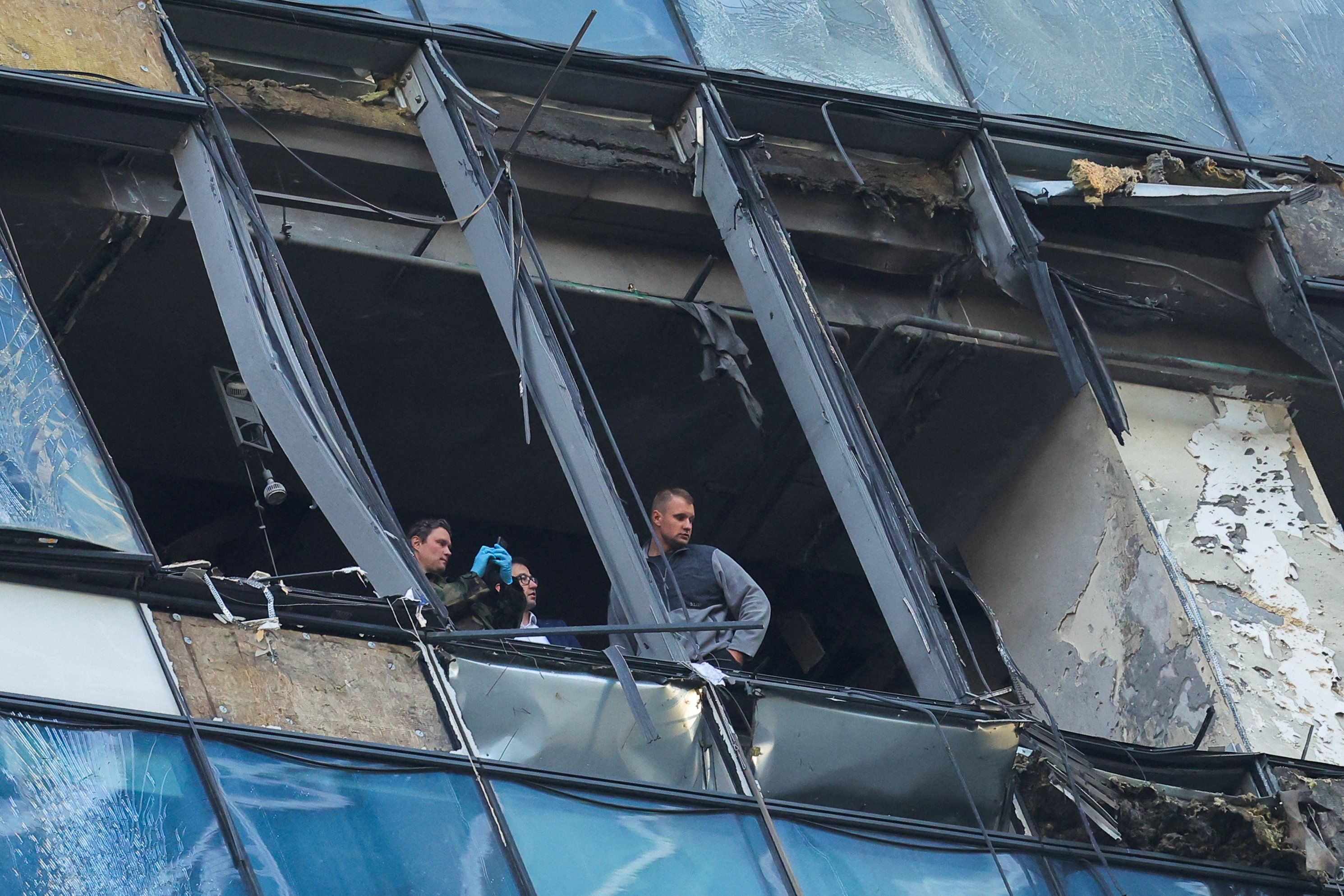Early Tuesday, a drone struck a Moscow skyscraper that houses Russian government ministries. It was the second drone attack on that building in just 48 hours. Ukraine’s government has not yet acknowledged responsibility, but its military is suspected for obvious reasons.
Though Ukraine has no way of matching the intensity and destructive power of Russian attacks on Ukrainian cities, there are several reasons why these drone strikes matter.
They demonstrate that authorities in Kyiv, once reluctant to speak publicly about attacks inside Russia, have become less concerned about Putin’s threats of retaliatory escalation. In recent days, senior officials, including President Volodymyr Zelensky, have said publicly that targeting “symbolic centers and military bases” inside Russia is “inevitable, natural and absolutely fair.”
The attacks also make it more difficult for Vladimir Putin’s government to persuade Russians that its “special military operation” in Ukraine will impose few costs and no risks for Russian civilians. They grab the attention of Russia’s political and business elite by hitting targets close to their offices. They undermine confidence in Russia’s military by underlining its repeated failure to prevent attacks on the heart of the capital, which may have been launched from hundreds of miles away.
Finally, they signal that despite stepped-up Russian missile strikes on Ukrainian cities in recent weeks, Ukraine’s government and military are only becoming more aggressive.
